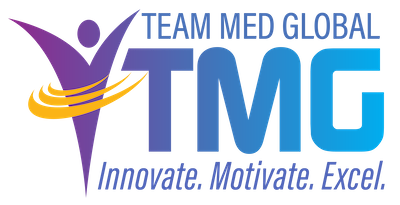 Medical Services Professionals (MSPs) handle critical administrative tasks, ensuring compliance, safeguarding patient safety, and maximizing reimbursements. Often, though, we find ourselves grappling with loneliness, isolation, and burnout, a problem exacerbated by the lack of camaraderie and face-to-face collaboration due to remote and hybrid work environments.
Medical Services Professionals (MSPs) handle critical administrative tasks, ensuring compliance, safeguarding patient safety, and maximizing reimbursements. Often, though, we find ourselves grappling with loneliness, isolation, and burnout, a problem exacerbated by the lack of camaraderie and face-to-face collaboration due to remote and hybrid work environments.
The Loneliness Epidemic Among MSPs
MSPs are on the front lines of healthcare’s administrative challenges. We work tirelessly to check the accuracy of provider credentials, navigate the intricacies of accreditation, and ensure compliance with ever-evolving regulations. The high-stress nature of our work can lead to burnout, which is further exacerbated by the isolation we may experience.
One significant factor contributing to loneliness is the lack of camaraderie within our profession. Unlike clinical staff who work in teams and have direct patient interactions, we often toil in relative isolation, with limited opportunities for social interaction with colleagues. This isolation can lead to feelings of disconnection, reduced job satisfaction, and mental health issues.
Remote and Hybrid Work: Culprits in Isolation
The rise of remote and hybrid work models in healthcare, accelerated by the COVID-19 pandemic, has intensified the issue of isolation among MSPs. While these models offer flexibility, they also remove the opportunities for in-person collaboration and socialization that were once part of the job. Video meetings and emails have replaced hallway conversations and shared lunches, eroding the sense of community within the profession.
Fostering Connection Among MSPs
To combat the loneliness and isolation experienced by MSPs, it is crucial to focus on both individual and team-level strategies.
Encourage Communication: MSPs should be encouraged to communicate regularly with our colleagues, even if it’s through virtual means. Establishing chat groups, video calls, or forums dedicated to discussing common challenges and sharing experiences can help foster a sense of community.
Professional Development: Encouraging MSPs to engage in professional development opportunities, such as webinars, conferences, or workshops, can provide a chance to connect with peers while enhancing our skills and knowledge.
Mental Health Support: Employers should provide resources for mental health support, including counseling services and stress management programs. This not only helps MSPs deal with burnout but also shows that our well-being is a priority.
Mentorship Programs: Implementing mentorship programs within MSP teams can promote collaboration and knowledge sharing. Experienced MSPs can guide newcomers, fostering a sense of belonging and camaraderie.
Team Building Activities: Even in remote or hybrid work settings, MSP teams can engage in virtual team-building activities like online games, trivia, or collaborative projects. These activities can help break the ice and build stronger bonds among team members.
The Hallmarks of Strong Teams
In addition to individual strategies, it’s essential to understand the hallmarks of strong MSP teams:
Trust: Trust is the foundation of any successful team. MSPs should be able to rely on one another’s expertise and support without hesitation.
Communication: Open and effective communication is key. Team members should feel comfortable sharing their ideas, concerns, and feedback.
Collaboration: Teams that collaborate effectively achieve better results. Encouraging MSPs to work together on projects and share knowledge can strengthen our sense of unity.
Recognition: Recognizing and appreciating the contributions of MSPs is vital. This can be done through formal acknowledgments, rewards, or simply expressing gratitude.
Problem Solving: Strong teams work together to solve problems efficiently. Encouraging MSPs to approach challenges as a team can boost morale and a sense of purpose.
Alleviating Burnout
Addressing burnout among MSPs is not only crucial for our well-being but also for the efficient functioning of healthcare organizations. In addition to the strategies mentioned earlier, employers should consider workload management, job rotation, and flexible scheduling to reduce burnout risks. Creating a culture that prioritizes work-life balance and employee well-being is essential.
By implementing strategies to foster connection at both individual and team levels and recognizing the hallmarks of strong teams, healthcare organizations can create a more supportive and fulfilling work environment for MSPs while alleviating burnout.
